Ipswich sex worker killings 10 years on
- Published
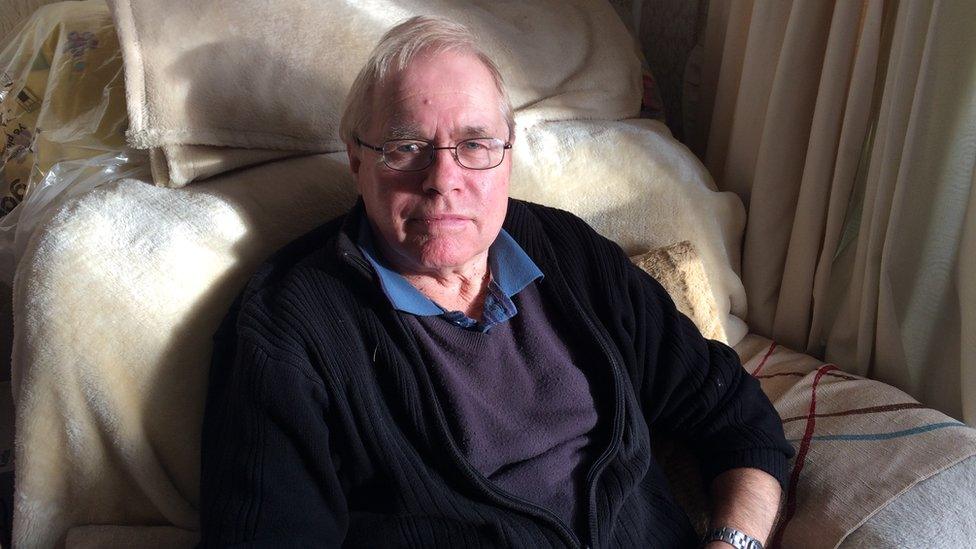
Tania Nicol's father Jim Duell said he was "not haunted" by the death of his daughter 10 years on
Ten years ago, five sex workers were taken from the streets of Ipswich and murdered in the space of six weeks. Now, the father of killer Steve Wright has urged him to confess. But what impact has his murderous spree had on the family and friends of his vulnerable victims?
It is 10 years to the day since Tania Nicol went missing.
Once a sea cadet looking forward to a naval career, she, like Wright's four other victims, had fallen into a world of drugs and - ultimately - prostitution.
The 19-year-old was the youngest of the five women murdered by Wright during the winter of 2006.
When she went missing on 30 October 2006, her father went "out of his mind" with worry. She was found dead at Belstead Brook, Ipswich, three weeks later.
"I had said to Tania once, knowing she was taking some kind of drugs, that you're going to end up in an institution, jail or dead," said Miss Nicol's father Jim Duell.
The revelation she had been a sex worker was a shock.
Five sex workers were murdered in Ipswich 10 years ago
"We realised it was the desperation for drugs," he said. "There's a line that you cross, she crossed that line into that life.
"I wasn't disappointed with her. These are daughters, not just things, not sex machines. They are human beings who went to school, who were bright, pretty and innocent, and then they grow up into a world of drugs, evil. It's all out there to corrupt their lives. They fell into corruption."
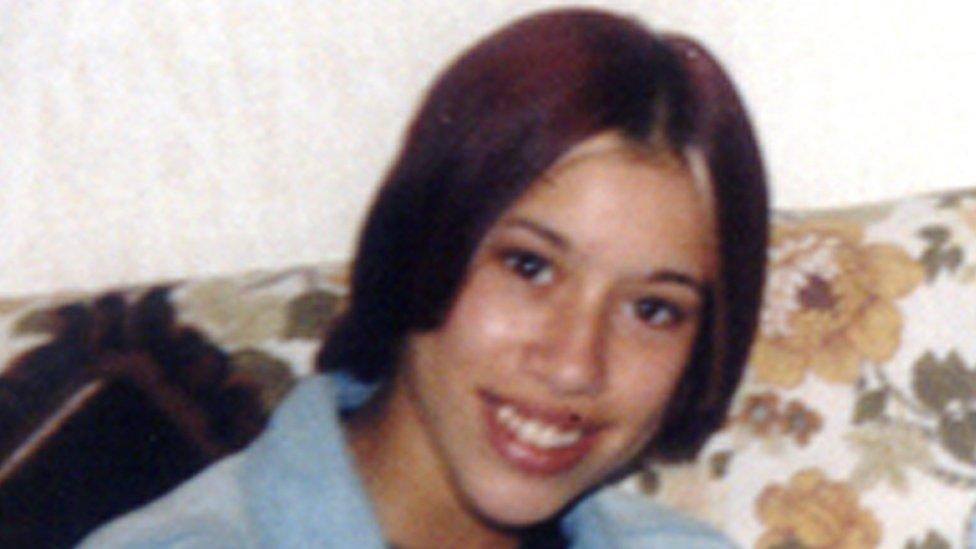
Tania Nicol had been a keen sea cadet before she met a boyfriend who introduced her to drugs
The retired taxi driver had been an alcoholic up until four years before his daughter's death. A decade on, the born again Christian says his faith has helped him come to terms with his loss. He said he felt "at ease" one night when he heard Miss Nicol "tell him" she was "OK".
"I could've gone on, 'woe is me, woe is me'. If I had to go through it on my own human strength, I don't know what would've happened, I might've gone back to the drink."
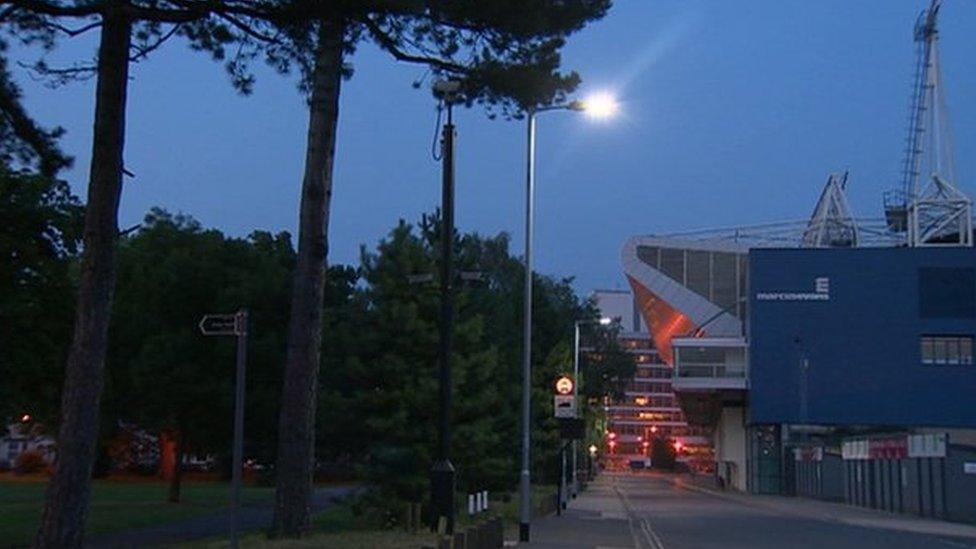
About 30 women worked in Ipswich's red light district, close to the football club, at the time of the murders in 2006
Two weeks after Miss Nicol had disappeared, Gemma Adams, 25, was reported missing. Her body was found first, a little further upstream from where police later discovered Miss Nicol's body.
Another sex worker, Anneli Alderton, 24, was the next to go missing. She was found a week later at Nacton, her body had been left in a cruciform pose with her arms outstretched.
Her disappearance was followed closely by that of Annette Nicholls, 29, who was found in woodland with her body left in a similar pose.
Wright's final victim, Paula Clennell, 24, was found just hundreds of metres away.
But while Suffolk Police found themselves in the middle of an unprecedented murder investigation, other sex workers continued to work on the streets.
One, Jade Reynolds, had only given birth to her son weeks before the killings began. However, her heroin addiction meant she needed to earn money.
"I was frightened for the girls, not necessarily for myself," she said.

Ex-sex worker Jade Reynolds said she "had to" take to the streets to fund her drug habit despite the killings of her friends
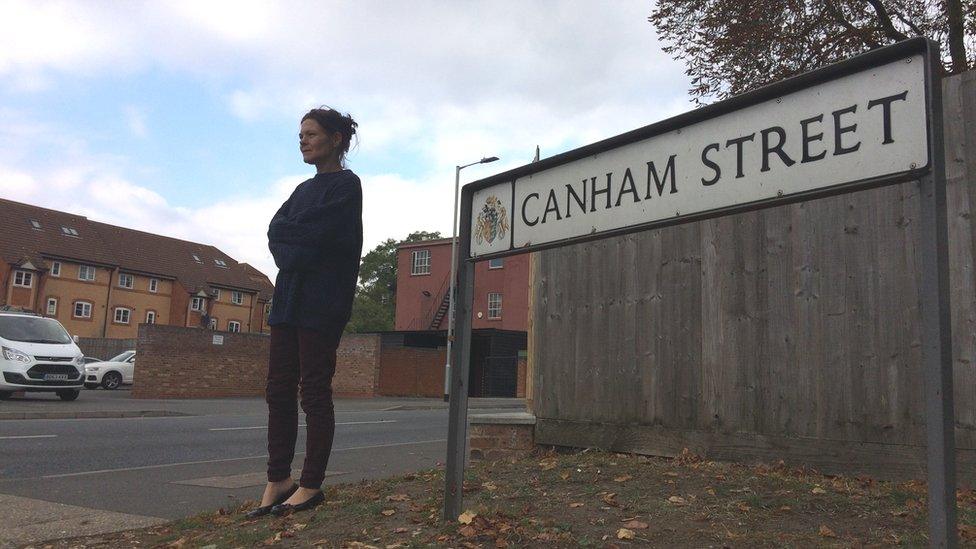
Jacci Goldsmith said Ipswich "changed overnight" after five sex workers were murdered by Steve Wright
"Now I'm clean, in hindsight, I look back and I'm embarrassed by myself and I feel guilty about it," says Ms Reynolds, who is now aged 33 and no longer working on the streets.
"But at the time the drugs are ruling your life. Personal safety went out of the window."
Similarly, fellow sex worker Jacci Goldsmith continued to take to the streets. She was desperate to avoid going back to an unhappy home life and wanted to earn enough money to get her fix of heroin so she could feel "normal".
Both women knew four of Wright's victims, but it was the death of Annette Nicholls that affected them most.
Ms Goldsmith said the mother-of-one had stopped by her flat on the evening she went missing. But she ignored the knocking on the door.
"She just wanted to come in," said Ms Goldsmith, who used to live "on the beat" at Canham Street but gave up drugs and sex work in 2008.
"I still hear her shouting through my letterbox, and that's 10 years on."

Ms Reynolds said losing Miss Nicholls "tore her heart out"
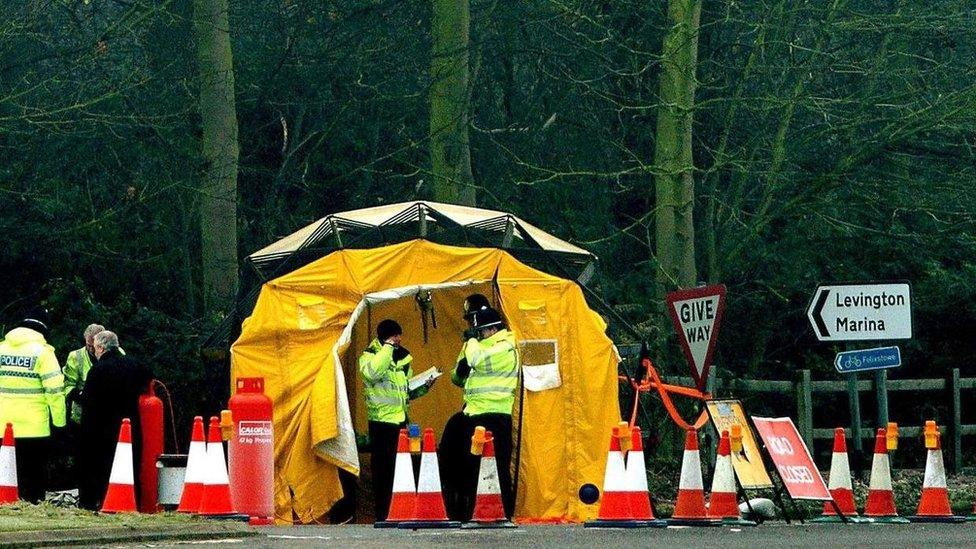
Wright's final two victims Annette Nicholls and Paula Clennell were found near each other in woodland near Levington
It was Miss Nicholls' death which also had the greatest impact on Ms Reynolds.
"Losing her tore my heart out," she says. "I've never been so humbled and honoured to know a person like that.
"Even though she was a working girl on drugs, she did everything for her kid, for her family. She had a beautiful soul, a beautiful spirit."
At the time of the murders, there were about 30 sex workers in Ipswich. The notoriety of the case made the town a "happy frenzy for punters", she says, as men wanted to "sleep with an Ipswich prostitute".

Steve Wright's five victims
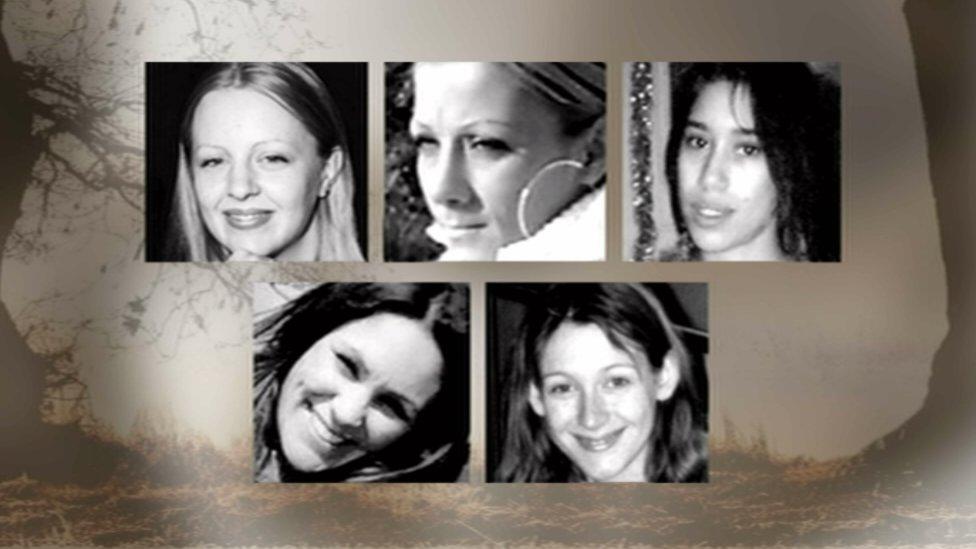
The five women, clockwise from top left, Gemma Adams, Anneli Alderton, Tania Nicol, Paula Clennell and Annette Nicholls
Tania Nicol, 19, was the youngest and first of Wright's victims. The former Chantry High School pupil went missing from the red light area near Ipswich Town FC's Portman Road on 30 October. Police divers found her body on 8 December at Belstead brook at Copdock.
Gemma Adams, 25, who had grown up in Kesgrave, was the second to go missing early on 15 November. Her boyfriend of 10 years reported her missing after she failed to respond to his text messages. Her naked body was found on 2 December 2006.
Anneli Alderton, 24, went missing on 3 December 2006. Her body was found in woodland at Nacton seven days later, deliberately "posed" in a "cruciform" shape with arms outstretched. The former Copleston High School pupil was found to be three months pregnant at the time of her death.
Annette Nicholls, 29, was last seen alive on 8 December 2006. Her naked body was also found in a "cruciform" pose, four days later. Her body was found along the Old Felixstowe Road, close to the body of Paula Clennell.
Paula Clennell, 24, had last been seen alive on 10 December 2006. She had given a TV interview just days before her disappearance, admitting she was "wary" about getting into cars but had to fund her £500-a-day drug habit. She was found dead on 12 December 2006.

The town's red light district was focused around West End Road, Portman Road and London Road, where Wright lived.
The women said they would charge each "punter" at least £20 and would go with them in their cars, by the river, on the corner of Portman Road and Canham Street.
In fact Ms Reynolds, who began working on the streets aged 17, had encountered Wright five years before the killings began.
She described him as a "little perverted, nervous and quiet man" who "just wanted business".
"He didn't seem that dodgy," she added. "I had the strangest requests asked by men that you don't think 'that seems dodgy'."
So what provoked Wright, who was 48 at the time and had visited prostitutes for years, to carry out these murders?
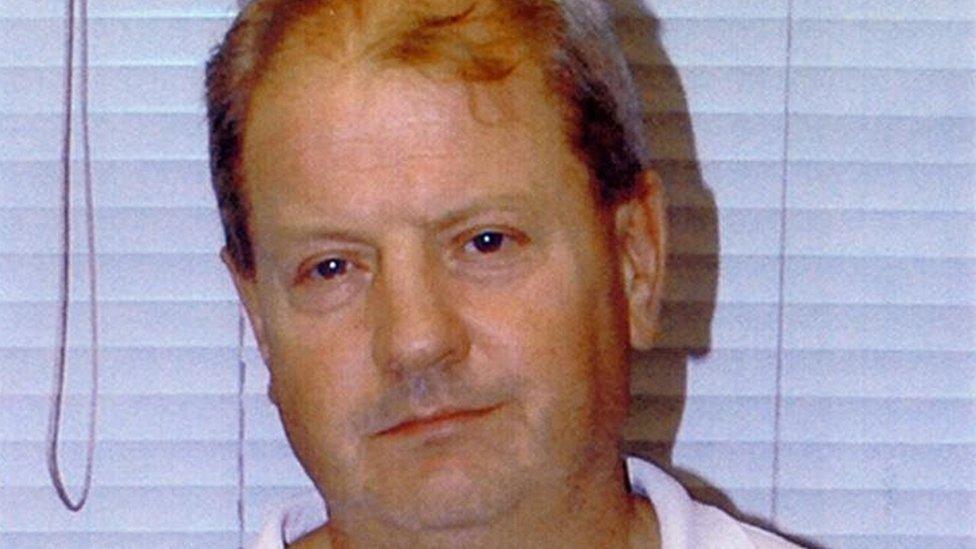
Wright was imprisoned for life in 2008 for five counts of murder
His father Conrad believes his son may have been "left damaged" by his mother leaving when he was young.
"Now Steve at that time would have been eight or nine years old," he said. "Then twenty-six years later, she appears... there was his siblings all saying there's my real mother, all that business, and Steve, he didn't like it.
"You know, that might have left a mark on him, and that turned him against women, I don't know. He didn't want to see his mum after 26 years."
However, the "excuse" that Wright was scarred by the family break up is not accepted by Anglia Ruskin University criminologist Colleen Moore.
"Lots of people have their parents walk out on them when they are young and of course it is distressing, that's a very natural response," she said.
"But most people don't deal with that feeling of abandonment by murdering.
"Steve Wright was not a fool. He was a cruel man who hated women and did what he did because he wanted to."

How the Ipswich murders helped change the law
The Ipswich murders resulted in a clampdown on prostitution and a strategy was set up to eradicate it from the town.
Furthermore, the police nationally changed their approach to policing sex work.
The Association of Chief Police Officers (ACPO) revised its guidance in 2011, external, noting that the danger and vulnerability that sex workers face had come to the forefront because of the "tragic episode of the Ipswich murders".
As a result, sex workers are now seen as vulnerable victims instead of criminals.
That was accompanied by a change in the law to criminalise the act of paying for the sexual services of women, external who are subject to exploitation.
Dr Ian Edwards, a criminologist at the University of East Anglia, said: "The Ipswich murders led to significant changes in the way the police and criminal justice system treat vulnerable women who work as prostitutes.
"New guidance for the police emphasises that vulnerable women should be helped away from prostitution rather than be treated primarily as criminals.
"Part of the strategy for helping exploited women is to criminalise the men who pay for their sexual services, rather than criminalising the women themselves."

- Published30 October 2016
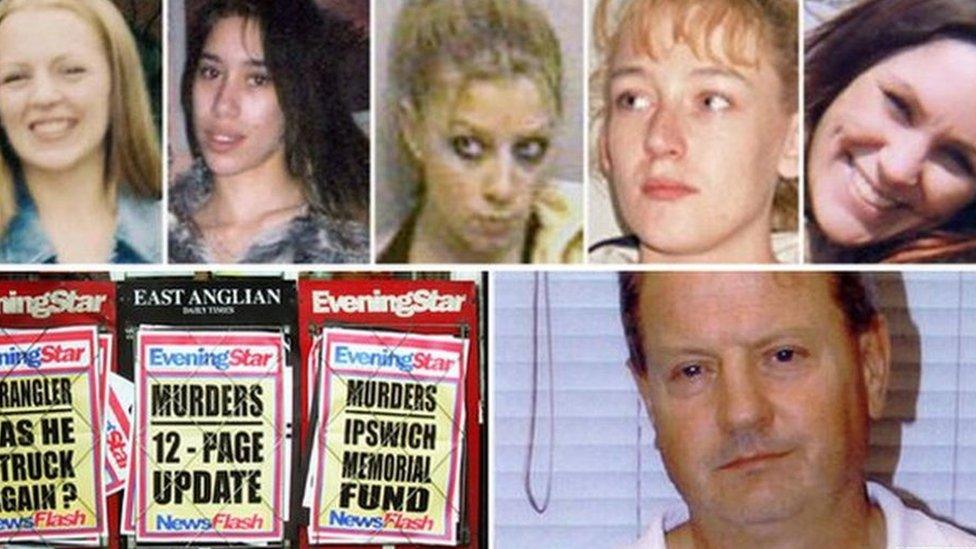
- Published31 October 2011
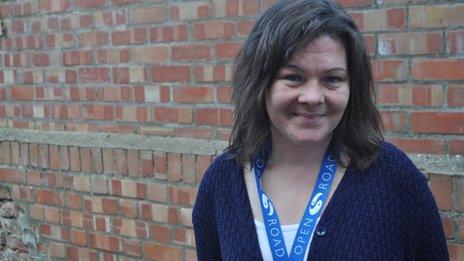
- Published6 October 2014

- Published23 May 2012
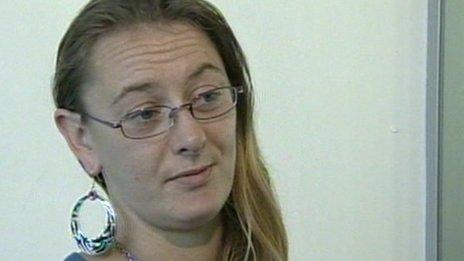
- Published23 May 2012
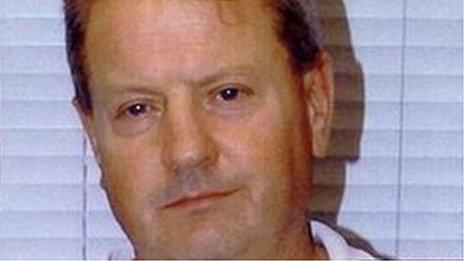
- Published8 July 2014
